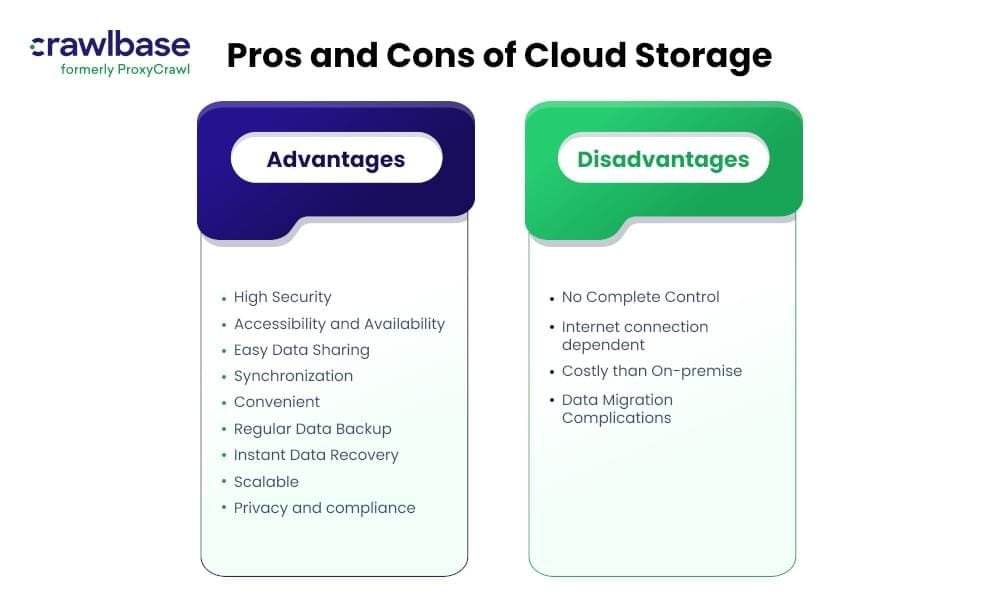Cloud storage is transforming the way individuals and businesses manage their data. With significant cost savings, improved access, and seamless sharing features, it’s no wonder that this technology is rising in popularity. In this article, we will delve into the numerous advantages of cloud storage, demonstrating why it is indispensable in today’s digital world.
What Is Cloud Storage?
Cloud storage refers to a service that allows you to store data on the internet rather than local drives. It is maintained by cloud service providers like Google Drive, Dropbox, or AWS. By accessing your data through the cloud, you gain flexibility and efficiency.
Accessibility Anytime, Anywhere
One of the most celebrated advantages of cloud storage is its accessibility. With an internet connection, you can retrieve your data from anywhere in the world, allowing you to:
- Work remotely without being tied to physical hardware.
- Share files effortlessly across teams.
- Access large files instantly on mobile or desktop devices.
This makes cloud storage a boon for organizations embracing hybrid or remote work models.
Cost Efficiency and Scalability
Cloud storage is a cost-effective solution for data management. Instead of purchasing expensive hardware and maintaining servers, businesses can rent storage as needed.
- Scalability: Storage space can be increased or decreased based on demand.
- Pay-as-you-go Models: You only pay for the storage space used.
These features ensure budget flexibility and eliminate overinvestment in IT infrastructure.
Data Security and Backup Solutions
A critical concern for users is data safety. Cloud providers often implement robust security protocols, including:
- Encryption for both stored and transmitted data.
- Redundant servers for secure backups.
- Regular security updates to prevent breaches.
By choosing cloud storage, you not only reduce data loss risks but also automate backup processes.
Collaboration Made Seamless
Cloud storage allows multiple users to work on the same document or project without overwriting changes. Its collaborative tools include:
- Real-time updates for improved teamwork.
- Version control to track changes over time.
- Integration with productivity apps like Google Workspace or Microsoft 365.
This ensures that businesses operate efficiently, even across different locations.
Reducing Environmental Impact
As companies strive to be more eco-friendly, cloud storage offers a greener alternative to traditional data centers. By consolidating resources in centralized facilities, it:
- Reduces energy consumption.
- Cuts down electronic waste by minimizing hardware usage.
- Utilizes optimized data center designs for greater sustainability.
Enhanced Disaster Recovery
For businesses, data loss during natural disasters can be catastrophic. The cloud simplifies disaster recovery with:
- Remote backups to safeguard critical files.
- Automated recovery options for faster data retrieval.
- Geographic redundancy to prevent localized damage from affecting all stored data.
These benefits make the cloud indispensable for companies handling sensitive information.
Streamlined Maintenance and Updates
Maintaining servers and software on-site requires regular updates and IT support. Cloud storage eliminates this burden through:
- Automatic software updates from the provider.
- Zero downtime as updates happen in the background.
- Simplified IT management for organizations.
This not only saves time but allows businesses to focus on their core objectives.
Cloud Storage and Innovation
Another of the key advantages of cloud storage is the scope for innovation. Cloud-based platforms drive:
- Artificial Intelligence and Analytics: Tools can analyze stored data, providing insights for decision-making.
- Integration with IoT devices: Makes data available instantly to connected devices.
This makes the cloud a hub for future-ready technologies.
Comparing Cloud Storage Providers
Choosing the right provider involves understanding your requirements and budget. Here’s a brief comparison of some popular options:
| Provider | Best For | Features |
|---|---|---|
| Google Drive | Personal use | Generous free storage integrates with Workspace |
| Dropbox | Team collaboration | User-friendly sharing, advanced search tools |
| AWS | Enterprise solutions | Highly scalable, robust security measures |
| OneDrive | Microsoft users | Seamless Office integration, cost-effective |
Steps to Move to Cloud Storage
Adopting cloud storage is simpler than you think. Follow these steps to ensure a smooth transition:
- Evaluate Your Needs: Identify storage requirements and file-sharing needs.
- Choose a Provider: Select a service that matches your criteria.
- Organize Files: Consolidate and categorize data before migration.
- Begin Migration: Use migration tools offered by providers.
These steps help businesses modernize while minimizing disruptions.
You may also like: How to Make a Simple Robot in 5 Easy Steps
Tips to Maximize the Benefits of Cloud Storage
To fully capitalize on cloud storage advantages:
- Regularly monitor storage usage and delete redundant files.
- Set clear access permissions to maintain file integrity.
- Utilize advanced security features like two-factor authentication.
Such practices ensure that cloud storage remains reliable and efficient.
Conclusion
The advantages of cloud storage are undeniable, offering solutions tailored to today’s fast-paced digital demands. With cost efficiency, advanced security, and unparalleled accessibility, it is transforming how data is handled. Businesses and individuals alike can leverage these features for greater productivity, sustainability, and peace of mind. Whether it’s collaboration, disaster recovery, or remote working, the future of storage lies in the cloud.
FAQs
What are the primary advantages of cloud storage?
Cloud storage provides accessibility, cost savings, improved collaboration, and enhanced data security.
Can cloud storage really replace traditional storage?
Yes, cloud storage is flexible and scalable, often serving as a superior alternative for businesses and individuals.
How secure is data in cloud storage?
Providers employ measures like encryption, redundant servers, and multi-layered security protocols to keep your data safe.
Are there disadvantages to cloud storage?
Some potential drawbacks include dependency on internet connectivity and varying costs based on storage needs.
Which is the best cloud storage service for personal use?
Google Drive and OneDrive are often favored due to their free storage options and seamless integration with productivity tools.
How much does cloud storage cost?
Pricing varies by provider and storage needs, ranging from free tiers to tailored enterprise packages.



